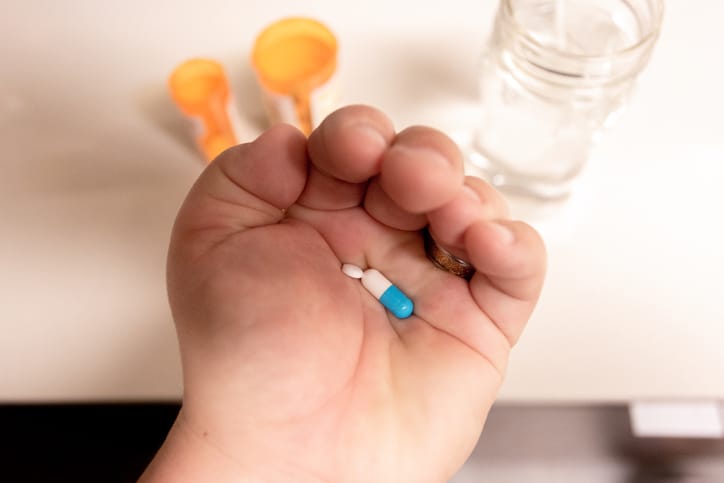
ADDICTION RISK AND ADHD: WHAT’S THE CONNECTION?
Attention deficit hyperactivity disorder (ADHD) affects about 5% of adults and 6-9% of children worldwide. While the medical community used to believe ADHD rarely continued beyond childhood, longer studies have shown that for millions this disorder carries through to adulthood and continues to have consequences. A study published by the National Center for Biotechnology Information found an increase in overlap with ADHD and substance use, hinting at a link between the two.
The connection between ADHD and substance use disorders started to surface a couple of decades ago. For starters, the study above references previous studies from the early 2000s that revealed ADHD in solid numbers (38%) among adolescent marijuana smokers, and nearly a quarter of treatment-seeking young adults reported an ADHD diagnosis. This NCBI-published study covered 3,558 patients from 10 different countries who were all treatment-seeking. Out of those, 40% screened positive for ADHD. But the much bigger picture remains to be seen.
Are People with ADHD More at Risk for Addiction?
Another long-track study published by NCBI revealed more than half of the adolescent ADHD participants not only smoked cigarettes, but also developed a substance use disorder in young adulthood. Another thought among researchers is that ADHD adolescents may develop drug-seeking behavior in order to reduce the effect of their hyperactive mood and to calm themselves or possibly improve their sleep.
While scientists and researchers don’t yet have hard numbers for an ADHD-addiction risk, there’s growing concern that individuals with ADHD may be more susceptible to alcohol or drug misuse due to the nature of the disorder itself. The idea is that both adolescents and adults diagnosed with attention deficit hyperactivity disorder are more likely to make impulsive decisions in hyperactive episodes than those who are not. This could possibly lead to spontaneous drug use which, in some cases only takes one time to become addicted.
Much like drug use, there’s an American stigma surrounding ADHD that’s associated with failure and demoralization, so it would make sense why people with a hyperactivity disorder would want to self-medicate. But because the data on the exact cause of this ADHD-substance use link is still inconclusive, so is the treatment plan. The one certainty medical professionals offer is if an individual is suffering from both, then both should be treated as co-occurring disorders together. While we don’t yet know as a society if ADHD helps cause substance use or vice versa, we do know how to treat both disorders using a dual-diagnostic approach through therapy, medication, support groups, and treatment programs if needed.

US Stats for ADHD
Here are the national facts on ADHD from the National Institute on Mental Health (NIMH) and the Centers for Disease Control and Prevention (CDC):
- ADHD is three times more likely to be diagnosed in boys than girls through the adolescent phase.
- Half of children with ADHD also have a co-occurring behavioral problem.
- Out of that half with co-occurring disorders, 33% suffered from anxiety, 17% had depression, and 14% were on the spectrum of autism.
- Over 6 million children were diagnosed with ADHD in 2016 alone.
- ADHD is twice as likely to be diagnosed in boys than girls when it comes to younger children.
- ADHD is more common in men than women (more than 5% in males and 3% in females).
- More than 4% of the adult population has ADHD.
- Close to half of all adolescent ADHD cases show serious mental impairment of some kind.
Symptoms of ADHD
Not sure your child or loved one may be suffering from attention deficit hyperactivity disorder? Here are some potential symptoms:
- Relationship problems
- Constant depression
- Forgetting plans
- Increased anxiety
- Self-esteem issues
- Problems at work
- Poor anger control
- Impulsive decision-making
- Co-occurring substance abuse
- Can’t get organized
- Putting things off to the last minute
- Easily frustrated
- Consistently feeling bored
- Rapid mood changes
ADHD Treatment at Meadows Outpatient Center
If you’re diagnosed with ADHD who also suffers from a substance use disorder and is seeking treatment, The Meadows Outpatient Center can help. We specialize in helping those with trauma, mental health disorders, and addiction. We use TOVA (Test of Variables Attention), a computerized test that helps us screen, diagnose, and treat ADHD.

Reach Out Today
Convenient, comprehensive care is available. Your next chapter can start right now.